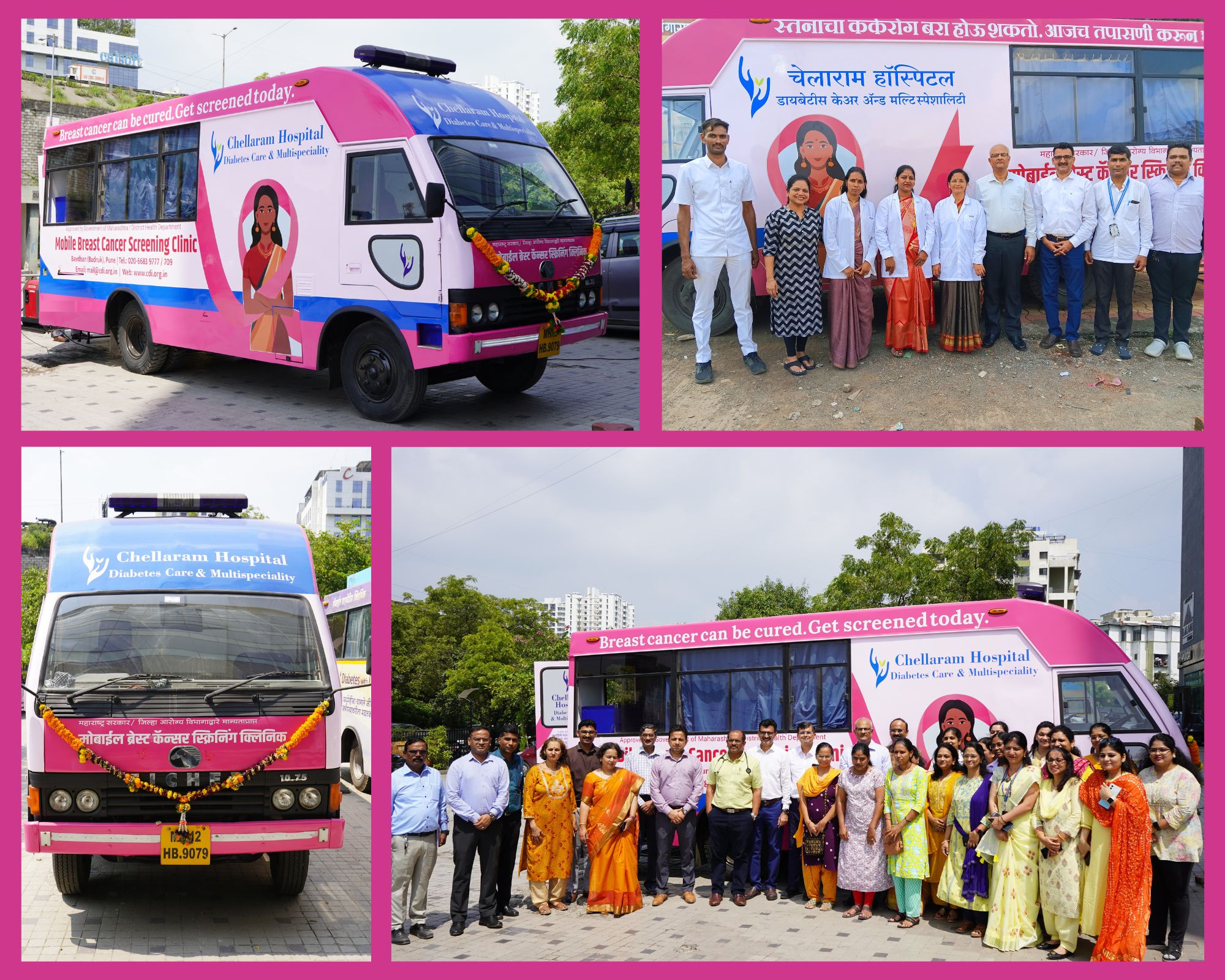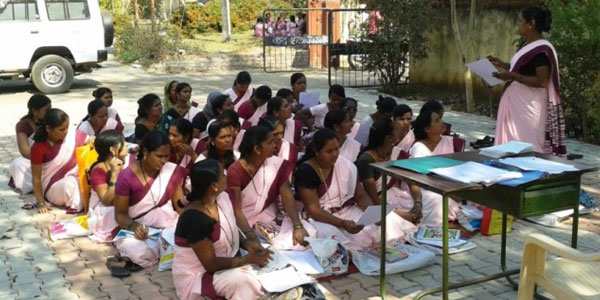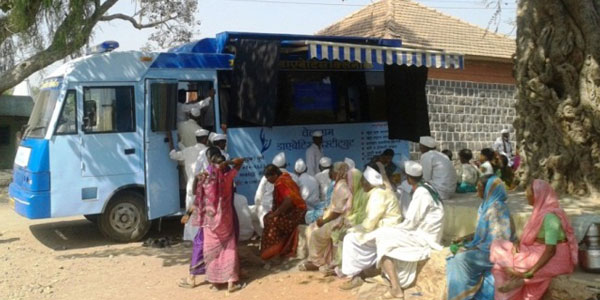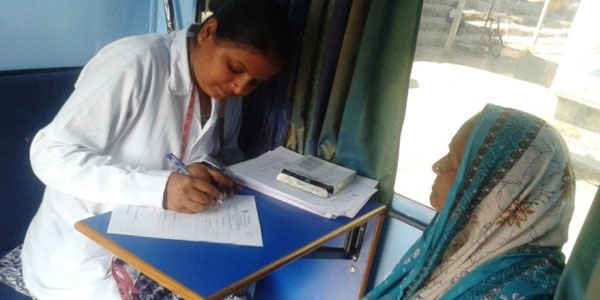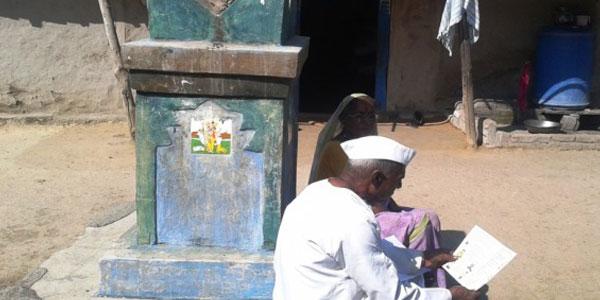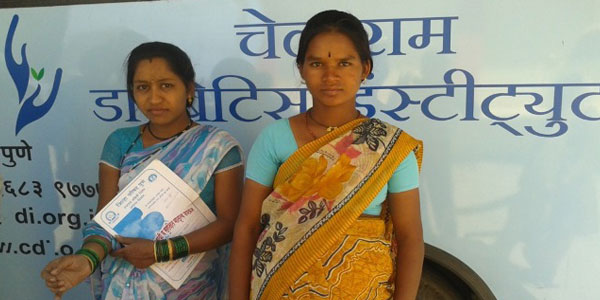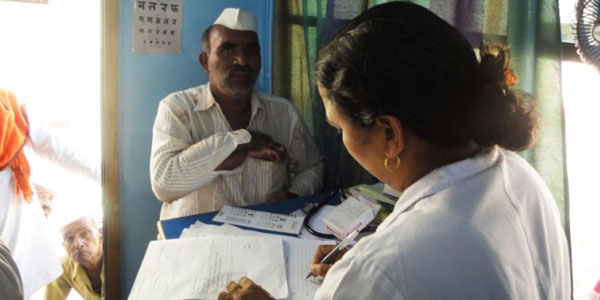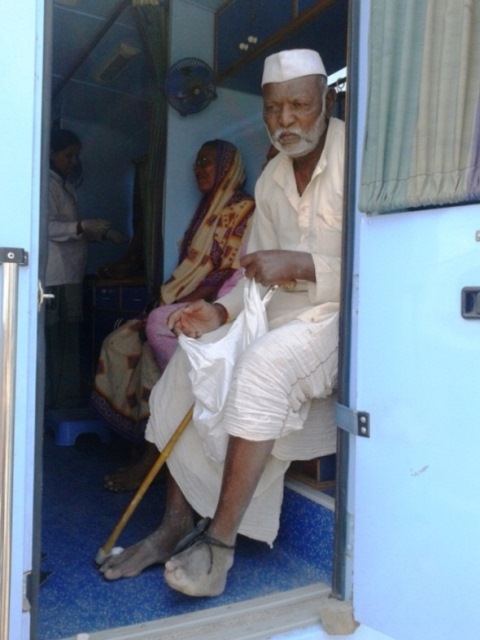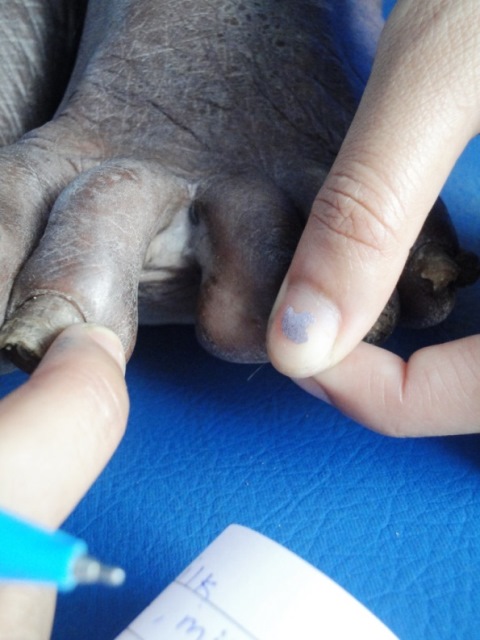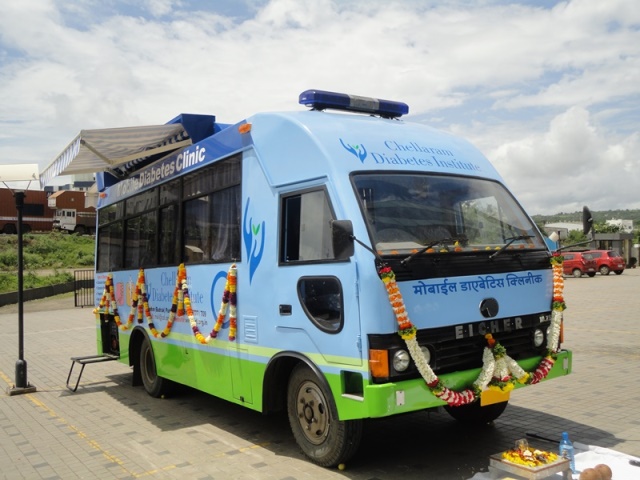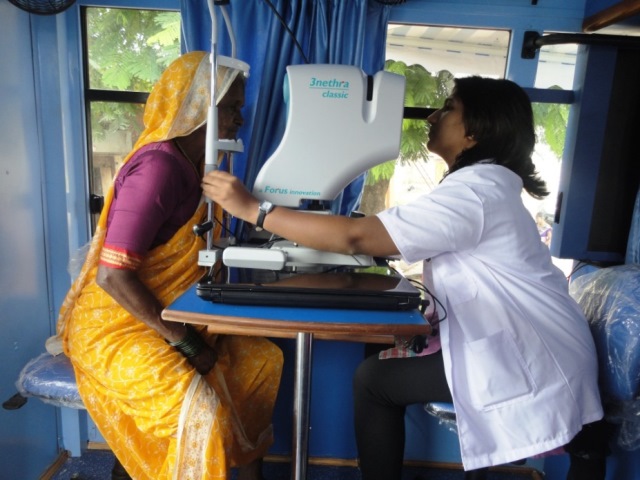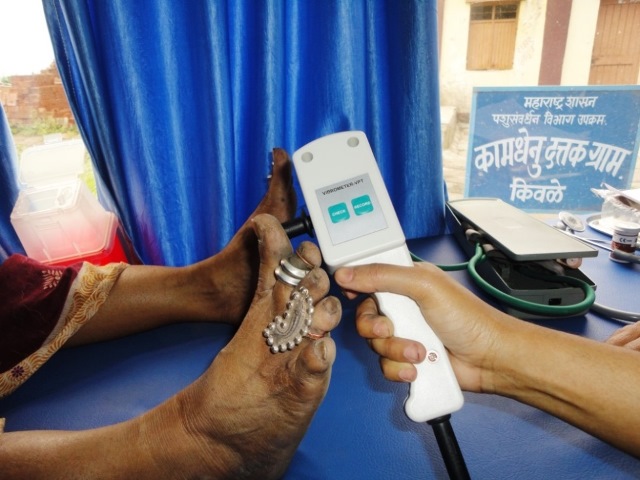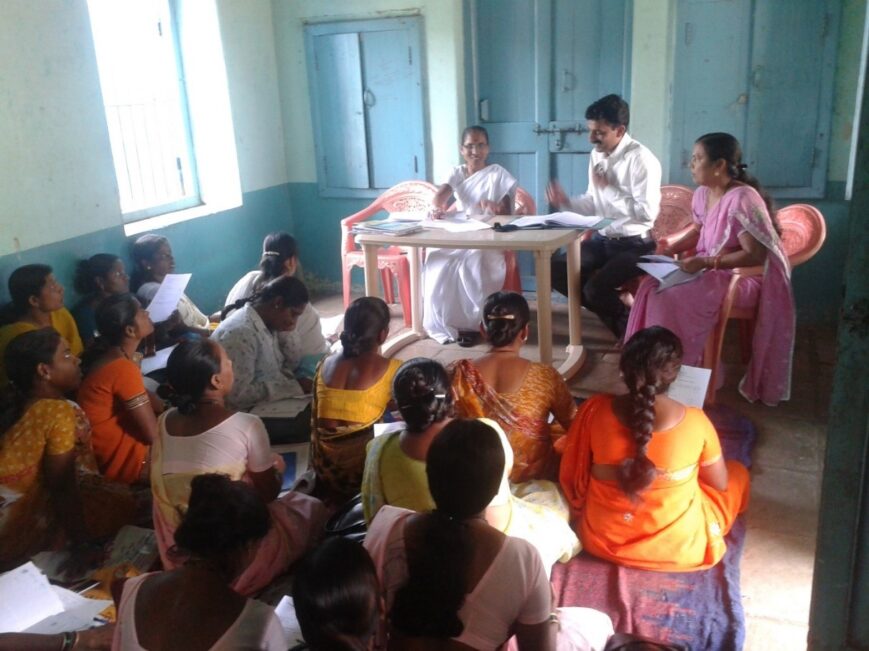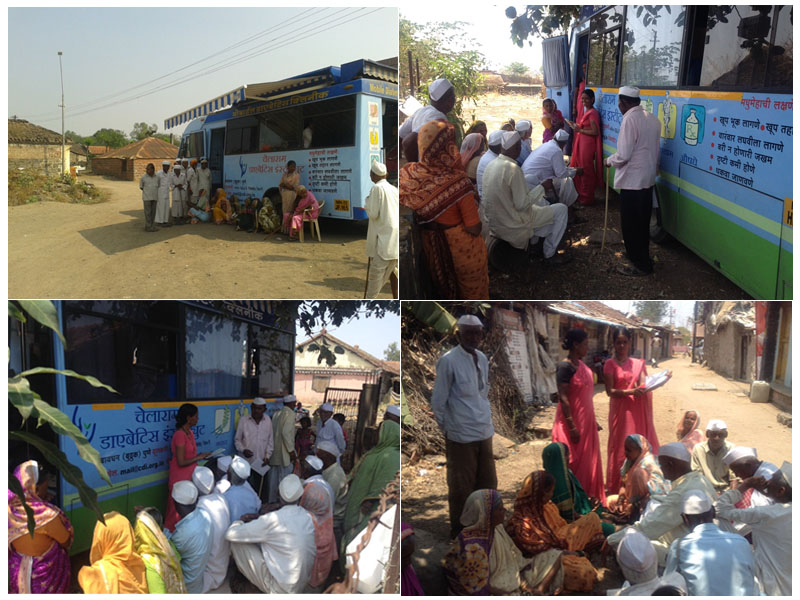Mobile Breast Cancer Screening Clinic
Following a hugely successful Diabetes Outreach Program covering 900+ villages and screening 150,000 subjects – which inspired the State Government to follow the model, we are now addressing another Health Issue which is peculiar to Rural Villages in India. Breast Cancer Screening. Breast Cancer is becoming a leading cause of all cancer related deaths.
Apart from lack of necessary facilities the stigma attached to Breast Cancer is very high in Rural Areas in India which prevent Women from basic screening. So Chellaram Foundation decided to reach out to them at their doorsteps as we did successfully for Diabetes through Hub and Spoke Model with a team of Trained Health Care Workers and well recognised Screening Facility. The screening technology using thermal imaging is completely contactless and thereby address the “stigma” issue to a great extent. We have taken ASHAs (Accredited Social Health Activists) on Board for this screening. We have also made arrangements for referring the high-risk subjects as a result of screening to a well-known Cancer Centre in Pune for further Diagnosis and Treatment. We expect that this initiative would hugely benefit the Women Population in India as it is believed that in most of the cases of Breast Cancer, it can be cured if detected early.
Most rural men and women are hard workers in the agricultural sector and may not be able to afford healthcare due to high cost, and appropriate health services may not be available or accessible by them. There is also a lack of awareness about Diabetes Care in rural area.
To address this situation, Chellaram Diabetes Institute (CDI) launched its ambitious Outreach Program through Mobile Diabetes Clinics, on the 26th September 2012 from village Shiroli Khurd of Maharashtra, India.
The program is a philanthropic initiative of CDI for the under privileged people of the rural area of Pune district. It involves taking the Mobile Clinic to the villagers door step for the purpose of – Patient Care, Education and Awareness – for Diabetes & its Complications.
CDI’s Out Patient Clinic at Pune is responsible for the co-ordination and planning of the Outreach Programme.
A pilot of a model for enhanced diabetes care in rural community of district Pune, Maharashtra (Project – Diabetes with Dignity)
Aim: To pilot feasibility and effectiveness of a model for enhanced care of diabetes mellitus in adults in a rural community of district Pune, Maharashtra.
Objectives:
- To empower the ASHAs by training them to identify and screen adults for diabetes by house to house survey using a validated questionnaire and refer subjects with high risk of diabetes in the community to Auxiliary Nurse Midwives (ANM) at Health Sub-centre (SC) and follow up
- To build the capacity of the ANMs and Multipurpose Workers (MPWs) of sub centres to conduct random blood sugar (RBS) testing by glucometer and refer those with RBS ≥ 200 mg/dl to Medical Officers (MOs) of the Primary Health Centres (PHCs) and maintain records for follow up
- To reorient MOs on management of diabetic patients and prevention of complications (pharmacotherapy and diagnostic/ prognostic workup)
- To create awareness in the community, and specifically educate subjects with diabetes and their caregivers for better care of diabetes and its complications
- To involve community based organizations in raising awareness of diabetes and its complications
Through this project, we tested an intervention model for better diabetes care and disease management in rural India, by training and optimizing engagement of existing community health worker groups, particularly ASHAs as well as the ANMs/MPWs.
The intervention aimed to bring diabetes care virtually to the doorstep by trained ASHAs, in a sustainable and systematic manner, under the guidance and supervision of a nodal agency. Through this study, over 10,000 villagers covered under 2 PHCs in Baramati block of Pune will be screened for diabetes.
We hypothesized that the intervention will be able bring about significantly improved glycemic control as estimated by the primary outcome – mean change in glycated haemoglobin (HbA1c) levels among diabetics in the intervention arm as compared to those in the comparison arm who only receive routine care.
Further, the intervention would significantly improve knowledge, attitudes and practices related to prevention and management of diabetes among the diabetics as well as ASHA/ANM/MPW in the intervention arm.
From a sustainability point of view, the intervention aims to build on existing primary health care system and if found to be feasible, could be further evaluated through a larger randomized controlled trial to be able to recommend for upscaling by the Government of India.
The project was implemented in collaboration with Public Health Foundation of India and Sanofi Diabetes
A Pragmatic Protocol for Improving Diabetes Care in Rural Pune- Project Pragati
Objectives:
- To train ASHAs on screening adults for diabetes by house to house survey through random blood glucose (RBG) testing with glucometer, and refer identified subjects with high risk of diabetes/known cases of diabetes to Mobile Diabetes Clinic (MDC) for further investigation
- To train the ASHAs in doing house-to-house visits for educating subjects with diabetes and prediabetes, and their caregivers for better care of diabetes and its complications
- To involve the ASHAs in raising awareness of diabetes and its complications in the project villages
- To build the capacity of the auxiliary nurse midwives (ANMs) and Multipurpose Workers (MPWs) of sub centers on screening and referral
- To reorient the medical officers (MOs) of the PHCs on management of patients with diabetes and prevention of complications
Objectives:
- Difference in mean HbA1c in pre- and post-intervention
- Proportion of patients with Blood Pressure <140/90 mmHg compared in pre- and post-intervention
- Increased level of knowledge and capability of ASHAs regarding care of diabetes, and related complications in pre- and post-intervention
Data analysis work is in progress


